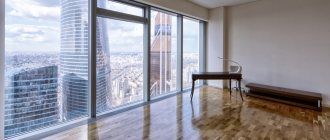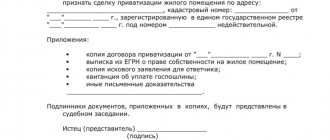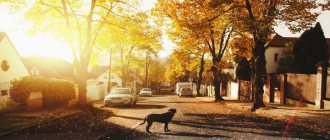The pandemic has partially changed Russians’ ideas about country life - more and more citizens who previously preferred to stay in cities are considering moving to the countryside. Living in the countryside is now almost prestigious, which could not but affect the cost of suburban real estate. During the two coronavirus years, the most noticeable increase in house prices has been in areas located near metropolitan areas. Russians are ready to choose paths instead of polluted streets, but they are not at all ready to completely abandon ties with civilization. Why run away from cities, how much private houses cost and where to buy them is extremely easy, Lenta.ru found out.
Advantages
The advantages of rural registration, as discussed earlier, include living in an ecologically clean area, as well as growing and eating organic food yourself.
Advantages of rural registration:
- in the form of a reduction in the cost of car insurance. In addition to this positive side, there is another important advantage - for a citizen who has living space in the city, there is the opportunity to register in a village (if there is other living space there) in order to reduce the cost of car insurance. For car owners registered in the village, the insurance cost ratio is significantly lower. Insurance is calculated not based on the registration of the car, but based on the registration of the car owner (after all, the car will mainly be used on rural roads). Consequently, rural registration helps to significantly save on car insurance;
- in the form of a reduction in the cost of utilities (if there is an apartment left in the city). Documented rural registration provided to the relevant authorities (management companies) can also help save on utility bills. You need to provide information that no one lives in the apartment (everyone has checked out), and submit documents confirming your rural registration.
Is it possible to register if there is no house at all or it is not completed?
If the construction of a house is unfinished (for example, on an individual housing construction plot), it is impossible to register in it.
For registration , it is necessary that the house be accepted by an interdepartmental commission
. If this happens, the necessary stamps and signatures are in place, then minor deficiencies in the construction will not prevent you from registering at the dacha.
There may be an option when your district or village has not yet been put into operation, but your house has already been accepted by the commission, then registration in a new house is carried out on the basis of an agreement of shared participation in construction
.
Registration without a home - does this happen? Yes, if you buy a plot, for example, in a village where there is no house (it was destroyed by old age or natural disasters), then you need to check ahead of time to ensure that no one remains registered there.
A person cannot have a residence permit in a non-existent house
. But if this has already happened, then the FMS authorities are obliged to discharge all residents from this area.
For this you may need:
- Conclusion of the interdepartmental commission on the lack of residential space on this site.
- A court decision on the impossibility of registration in the territory in question.
If you decide to buy a house, check
so that it is designed as a living space. It must be built on an area intended for individual housing construction and have all the necessary communications.
“As a rule, temporary or permanent registration is implied, that is, a notification sent to the state by a citizen about where he permanently lives or is temporarily located. And although it is difficult to find a person who does not know them, not everyone is aware of the legal consequences of the presence/absence of registration.
Where to begin?
How to register in the village? To register for any residential premises, regardless of location, you must obtain the consent of the owner .
In rural areas the order is the same.
If the person being registered is not the owner of the house , then you need to enlist the support of the latter.
Next, you can check the availability of all papers. If something is lost, restore it. After this, you can proceed directly to registration.
Timing and cost
A specialist at the passport office of the village administration or at the regional MFC, who has accepted the application and certificates, announces the date when you need to come and pick up the completed documents.
Usually it is 6-7 business days. If a citizen submitted documents to the Main Directorate of Internal Affairs of the Ministry of Internal Affairs of Russia, the period is reduced to 3 days.
For citizens of the Russian Federation, the registration service in rural areas is free.
Only foreign citizens pay the state registration fee.
Advantages of registration in the village
- Price . Rural housing is much cheaper than urban housing. When buying an apartment or private house in the village, you can save 15-20% of money. At the same time, the area and quality of accommodation are practically the same.
- Taxation . Real estate tax is calculated only taking into account the cadastral value. Housing fees in rural areas are lower than in cities.
- Accommodation . According to Russian legislation, most social benefits in a locality are provided only if you have local registration. If a citizen permanently resides in the village, the document is simply necessary. Without registration, a person will not be able to receive services at a local clinic or an entitled pension.
- Public utilities . When comparing prices for utilities in the city and rural areas of one region or region, significant savings can be identified. Monthly payments do not differ radically, but when calculating the difference after a year, you get a big benefit when living in a village or village.
- Availability of social services . Since the majority of the modern population strives for urban life, places in kindergartens, schools and other institutions are being vacated in rural areas. This is a serious problem in cities, even in the provinces. The population is constantly increasing, and places are appearing slowly. You must register for kindergartens and schools several months in advance.
- Car insurance . When applying for compulsory motor liability insurance, various coefficients are taken into account, and one of them is territorial. Registration in the village provides significant savings on car insurance. In some regions it reaches 50%. Many citizens live in the city, and registration is issued in rural areas.
- Ecology . Living in a village has a positive effect on health. In nature, clean air, fresh vegetables and fruits grown in the ground without chemicals. The closer a settlement is to a city, the more toxins settle in the soil. Sometimes a doctor prescribes a change of place of residence if the urban environment is too polluted.
What does rural registration give?
Living in rural areas is regarded by city dwellers as living in an ecologically clean area (for example, fresh air).
However, living in a village is not only remarkable for its clean air.
Permanent rural life sometimes involves running a subsidiary farm not for entrepreneurial purposes, but to cover one’s own needs.
Citizens living in the village are engaged in breeding domestic animals (cows, pigs, horses, rabbits, poultry, etc.) to provide their family with food (not for sale!).
Also, a plot of land can be assigned to the house in which a citizen and his family are registered.
In such a garden, crops for food consumption are also grown not for entrepreneurial purposes.
Thus, living in a village has its advantages in the form of organic food (milk, meat, eggs; root vegetables, berries, fruits, etc.).
However, it is important to remember the social benefits:
- if a citizen (registered in the village) or members of his family (registered in the village) require emergency medical care, and there is only a paramedic in the locality, the patient will be taken by ambulance to the district hospital;
- To undergo a medical examination, you also need to go to the regional center;
- To put your child on the waiting list for kindergarten, you will need to go to the regional center to submit documents and applications. If there is no kindergarten in the village, you will have to take the child to a preschool educational institution in the city of the regional center;
- men of conscription age liable for military service are assigned to the military registration and enlistment office of the district center to which the village belongs.
Important: when changing your registration, you also need to visit the military registration and enlistment office, which is assigned to the new place of registration.
Any administrative issues will also have to be resolved only in the district administration (in the absence of a local rural administration).
Video: Moving from city to village
What documents are required?
Most likely, registration in a village means being assigned to a private house. To implement this procedure, you need to prepare the following documents :
- application for registration;
- passport of the interested person;
- the house register, or rather, an extract from it;
- consent of the home owner;
- power of attorney, if the applicant does not independently carry out the registration;
- departure certificate, if the applicant has already left his previous place of residence;
- documents on the ownership of the house;
- technical documents for the house.
From the point of view of legal requirements, it is not necessary
to leave your previous place
However, if this happens, you need to register again no later than 7 days .
Registration procedure
If a house in a village has just been built, no one lives in it yet, or is not registered, then in order to carry out the registration procedure, you first need to collect certificates about the suitability of the building for habitation, as well as a document about putting the house into operation.
Important: constructive construction must be completed! (i.e. the construction of the floor, walls and roof has been completed).
If a house in the village is already in use and there are residents living in it, then in order to complete the registration procedure, you first need to provide the written consent of the owner of the house for the registration of one (several) more people.
If it is necessary to register a newborn or a child under the age of 14, but at least one of his parents is registered in the house, a written agreement from the owner is not required.
To obtain a residence permit, you need to contact the passport office of the village administration (if there is one) or the district MFC and collect the following documents:
- application for registration;
- the applicant’s passport (in case of registration of a newborn or a child under 14 years of age - birth certificate);
- extract from the house register;
- the owner’s consent to the applicant’s registration;
- documents on the ownership of the house;
- technical documents for the house.
If the applicant does not independently carry out the registration procedure, it will be necessary to
- power of attorney.
If the applicant has been discharged from his previous place of residence, it will be necessary to
- departure slip.
However, it is important to remember that you can only be unregistered anywhere for 7 days; more than that, a fine will be imposed on the citizen.
Another important nuance is that for a new registration (for example, if a citizen has moved from a city to a village), an extract from the previous place of residence is not required.
You can simultaneously apply for an extract from your old place of residence and for registration in a new place.
At the same time, time is saved and there is a guarantee that the citizen will not “hang in the air” without registration.
Using the State Services portal will help simplify and speed up the registration procedure.
There you can see the list of documents for obtaining registration, as well as leave an electronic application for registration.
In this case, you need to have a login and password to enter your personal account of the State Services portal.
Read how to do electronic registration through State Services. About rural registration. More details here.
Reasons for refusal
The main problem may be refusal to provide rural registration. There cannot be an unreasonable refusal, so it must be explained in writing
.
Common reasons
for this there may be: insufficient submission of documents, incorrect filling out of the application or non-compliance of papers with the requirements, etc. After correcting the shortcomings, you can register in the village without any problems.
Refusal
may be
issued due to the house not meeting residential standards
or being in a dilapidated, uninhabitable condition. In this case, you will have to look for another place to live and register.
Registration procedure
It is possible to transfer a built, purchased, inherited or donated house into the legal field by contacting the registration chamber at the address where the property is located.
The main requirement for registering buildings is their construction on sites classified as designated lands. Lands must be in perpetual use, in the form of lifelong ownership by inheritance or in private ownership. Buildings must be constructed in strict compliance with building codes and regulations; their construction must not infringe on the interests of other persons.
The citizen must submit a statement of intent to the responsible person personally or through his representative.
The following official documents must be attached to it:
- certificate of land ownership for individual housing construction (deed, certificate of lifelong inheritance or perpetual use, decisions, resolutions, etc.);
- identification document of the applicant;
- cadastral passport;
- payment document confirming payment of the state duty. The state fee for the service is 350 rubles (clause 24, clause 1, article 333.33 of the Tax Code).
A necessary document for entering a building into Rosreestr is the provision of an act of putting the facility into operation. Now and until March 1, 2018, legislative norms allow registration without such a document.
Buildings that are not capital - a garden (country) house, a summer kitchen, a toilet, a barn, a bathhouse, a light garage - are subject to a simplified registration procedure using a cadastral passport and declaration.
The development plan will be drawn up by a cadastral engineer called by the applicant; the passport can be obtained later from the BTI. Based on these documents, the registration chamber will legitimize the building.
The simplified procedure for registering real estate objects is unlimited if they are built on lands intended for horticultural or gardening activities. In this case, the registration will only require a document confirming the applicant’s ownership of the site and a declaration for the buildings.
Is it possible to do without registration?
A house and other unauthorized buildings without registration in Rosreestr will bring one concern to the owner:
- the court may decide on the demolition of the property;
- he can also impose an administrative fine for unauthorized construction;
- It is also impossible to sell, donate or inherit property without proof of ownership.
If an object is registered without presenting a building permit, information about the building, its location (address), purpose, type, number of floors and area is taken from the declaration for the registered object drawn up in the applicant’s own handwriting.
In the event that the applicant himself cannot carry out the registration, these functions can be performed by his representative by power of attorney. You can also send the application and documents by mail, in which case the application must be certified by a notary.
The procedure for completing the registration procedure provides for 10 days to carry out an examination of the documents received from the applicant, registration with the implementation of an entry in the Unified State Register. The applicant receives a certificate of ownership of an individual house and other permanent buildings on the individual housing construction site.
The most common reason for refusal of registration is the lack of permission for its construction.
What was in the house upon arrival?
Our house is a so-called cross hut. There are four isolated rooms in the log house: a cold entryway, a kitchen and two rooms.
Here are some of the amenities that were originally in the house and on the property:
- Stove heating: two Dutch stoves and one Russian stove.
- An empty gas cylinder means there is no gas in the village.
- Two bathhouses: one for washing, and the second for a barn.
- Well with drinking water.
- Soviet furniture from the previous owners: sofas, tables, several chairs, a sideboard, a trellis.
The former owners assured us that they were giving away two old but working washing machines along with the house. We believed it and even tried washing clothes in them. It turned out that these were not “washing machines”, but two rusty centrifuges without heated water. One of them didn't even start.
In the house we found a whole collection of handles for stove pots, sickles, a wicker children's cradle, a sled, a homemade wooden ruler, two rocker arms, matches in wooden boxes, an accordion and even a grain thresher. When we sent photographs of the house to friends, they laughed and called us reenactors of Soviet village life.
We knew we had a lot of work ahead of us to turn this house into our dream home. However, one could already safely live in it.
|
|
|
|
|
|
This bed had to be thrown away. The chairs have already partially fallen apart and are awaiting repair. The wardrobe was eaten by bugs and could not be saved.
A blue wall separates the kitchen and dining areas. The gas stove turned out to be faulty. But we washed the bench, stool and several shelves and are using them well
A rocker arm, grips, a cast iron pot, the rest of a wooden ruler and a children's potty - we can open a museum of rural life
In the hayloft we found two luxurious wicker sleighs
The former owners put these toys in a prominent place: they knew that we had two small children
We have a small storage room in the yard. There were two chests left in it, various attributes for beekeeping and an accordion - well, what would it be like in the village without it?
Toilet
Most city dwellers probably imagine a village toilet in the form of a cute little house with a heart on the door. With us, everything is different: the toilet is located in the house, or rather, in the annex where the cattle used to be kept. We didn’t even look into it and are still diligently avoiding it - for aesthetic reasons.
We came up with the idea of hiring a team to make us two septic tanks from concrete rings for water and a bathroom. Our soil is sandy, groundwater is very close, so the maximum depth of the septic tank is only two rings. We had to buy four rings for 2500 R each, two covers for them for 2000 R, and also pay for delivery and the work itself. We planned to install the pipes ourselves, following the example of local residents.
But there were problems hiring a crew. Firstly, the pandemic and self-isolation: the day after our arrival, the Ivanovo region was closed, and a pass was required to travel. Secondly, it turned out that in our area it is better to dig anything in August, when the groundwater drops lower.
We didn't have many options left. The most obvious is a dry toilet, which costs from 3,000 to 6,000 RUR. You need to regularly purchase additional consumables for it: either peat or special liquids for dissolving waste products. For a village, a peat dry closet makes more sense, as it is more environmentally friendly. We learned from neighbors that a 50 kg bag of peat for 450 RUR is enough for a family of three for a month. We didn’t buy a dry toilet - we decided to build a normal one in August.
As a result, we ordered a bucket toilet from a local store for 350 RUR. In addition, it came with a free “bonus” - the need to empty the slop every day. This unpleasant task really motivates us to dig a septic tank in August. Now we pour the contents of the bucket into the cesspool on the site, and put the mown grass, leftover food and groceries into it.
In this outbuilding they used to keep cattle and, apparently, go to the toilet. Now everything is still littered with things that we brought, but have not yet sorted out. In the background, in the center, is the door and entrance to the toilet. It is not difficult to find - by the characteristic hole in the floor above the cesspool. But we have no special desire to visit this establishment.
This is the range of prices for a bucket toilet offered by Yandex Market. We bought ours at the nearest store, and what they brought there is what you take. No problem of choice!
It won't be free
The increased demand for the “fence” expectedly led to an increase in its cost. Despite the fact that in the summer of 2021 Russians could easily move around the country and even travel beyond its borders, many chose dachas and used the warm months specifically to select suitable options. Because of this, the cost of suburban real estate on average across the country increased by 5 percent by autumn, to 7.1 million rubles for a standard home (data from CIAN; available to Lenta.ru). Back in early June it cost 6.7 million. Apartments on the secondary market over the three summer months increased in price noticeably less - 2 percent.
Photo: Konstantin Kokoshkin / Kommersant
Country houses are most actively rising in price in the south of Russia (plus 27 percent to the price level of last summer; a standard lot costs 10.18 million rubles), in the Central District (24 percent; 7.6 million rubles) and the North-West (plus 23 percent; 9.84 million), analysts calculated. In the Southern District, the record holders for growth were the Krasnodar Territory, where the cost of the “fence” increased by 54 percent (to 20.46 million rubles), and Sevastopol (by 37 percent, to 17.53 million). Increased demand, generated mainly by “remote workers” and those who, before the pandemic, preferred to vacation in warm countries, allowed owners to rewrite price tags.
Citizens living in the Kemerovo and Magadan regions can save up for their own home faster than residents of other Russian regions - in less than four years. In Moscow, you can save up for a private house in 18 years
According to the Restate.ru database, in the third quarter of 2021, ten out of 15 regions bordering cities with a population of over a million showed an increase in prices for country houses. The cost of offers in them has increased within three months in the range of 8-30 percent. Most of all - almost twice - in the Moscow region (up to 48.3 million rubles per lot). “The surge is also due to premium-class houses. In elite cottage villages, properties worth over half a billion rubles are going on sale, and they are dramatically changing the overall price picture,” experts point out.
The trend towards higher prices for fences has not affected only a few regions. This is, for example, the Leningrad region, where prices increased by only 1 percent in July-September (on average a house there costs 10.8 million rubles). Two large locations went into the negative: the Krasnoyarsk Territory, where houses fell in price by a percentage (to 4.9 million), and the Chelyabinsk Region with a 6 percent drop in the quarter. “This million-plus population is almost the only one in the country where the situation in all real estate segments remains virtually unchanged, and prices did not rise even during the period of market activity,” states Restate.ru. A house near Chelyabinsk costs on average a modest 3.2 million rubles.
Privileges
Residents of villages and villages receive some benefits that urban citizens do not have:
- Every year, rural residents have the opportunity to purchase free firewood for stove heating at home;
- once every five years, rural residents have the opportunity to purchase timber for free to repair their estate;
- in the event of a fire, a rural citizen has the opportunity to purchase 300 m3 of timber free of charge for the construction of a new house;
- the cost of paying for electricity for all village residents (regardless of social status) is significantly lower than for urban residents;
- young social specialists (teachers, health workers) who have graduated from a state higher educational institution and come to live and work in the village receive so-called “lifting allowances”, which encourage them to continue working in the village;
- social workers (teachers, health workers) working in the village have benefits in the form of cash refunds for payment for supplied gas and electricity.
Attention: coefficients and benefits are different in different regions of the country, so it is important to familiarize yourself with the benefits of each territorial unit.
see also
Comments 22
It's not children who work in the insurance BUSINESS. This is the same as deceiving the seller in a store.
All you need is permanent registration. No other way!
Directive of the Bank of Russia dated March 20, 2015 N 3604-U states that - 2. The territory of primary use of a vehicle is determined for individuals based on the place of residence of the owner of the vehicle indicated in the vehicle passport or vehicle registration certificate or in the citizen’s passport , for legal entities, their branches or representative offices - at the location of the legal entity, its branch or representative office, specified in the constituent document of the legal entity (subparagraph “a” of paragraph 2 of Article 9 of the Federal Law “On compulsory insurance of civil liability of vehicle owners”).
So, with cheap temporary shelters, you’ll screw yourself up. The law on compulsory motor insurance says that if false information is provided, leading to an underestimation of the insurance premium, “you’ll get a cookie”
Oh damn. How. So why not let the agent insure since it’s impossible - we’re just looking for where it’s cheaper.
Directive of the Bank of Russia dated March 20, 2015 N 3604-U states that - 2. The territory of primary use of a vehicle is determined for individuals based on the place of residence of the owner of the vehicle indicated in the vehicle passport or vehicle registration certificate or in the citizen’s passport , for legal entities, their branches or representative offices - at the location of the legal entity, its branch or representative office, specified in the constituent document of the legal entity (subparagraph “a” of paragraph 2 of Article 9 of the Federal Law “On compulsory insurance of civil liability of vehicle owners”).
So, with cheap temporary shelters, you’ll screw yourself up. The law on compulsory motor insurance says that if false information is provided, leading to an underestimation of the insurance premium, “you’ll get a cookie”
I apologize, but now I asked myself the same question. I live and am registered in the city, the price of compulsory insurance is 11k, and if in the village it’s 6k (I’ll do a temporary registration), will this be legal? “The territory of primary use of a vehicle is determined for individuals based on the place of residence of the owner of the vehicle.” I will also live in the village, so why is this not legal? After all, I can come to the city from the village and work. so (subparagraph “a” of paragraph 2 of Article 9) is exactly on our side and regarding “the vehicle indicated in the passport or vehicle registration certificate or in the citizen’s passport” The citizen may not have registration in the passport because will be temporary* and we return to the “place of residence” point, because without registration they don’t give us insurance! but it is temporary, that is, a village. (here the only question arises, because there is a permanent registration and you can’t find fault with it, and in a mirror it’s simply not there and there’s nothing to find fault with) HERE is another condition, the registration of the car is permanent in Khabarovsk, and temporary in Krasnoyarsk and I live in Krasnoyarsk! That is, the court, in theory, should be on our side + in addition to all this, when an electronic compulsory insurance is made, the registration data for the street of the house is indicated there. (i.e. it is not in the form of “vehicle registration”) BUT about which temporary/permanent one? So I indicate the temporary one! so everything is fair to no one and nowhere I did not deceive everything within the law =) (as I understand this is a loophole)
Today, many people strive to obtain city registration; this is considered more prestigious, in some cases justified and simply necessary. But before you decide to change your rural registration to a city one or decide on its choice, it is better to familiarize yourself with all the pros and cons. What are the main advantages of registration in rural areas?
Rural registration is most beneficial for car lovers and owners. The main advantage for them is the calculation of compulsory motor liability insurance, the amount of which depends on the correction factors. It is the territorial coefficient, which differs in all regions of the country, but which in rural areas of any region is significantly lower than in urban areas, that determines the price of insurance. This coefficient depends not on the place of registration of the car, but on the place of registration of its owner.
Registration at the place of stay (in particular temporary registration)
Citizens who arrived for temporary residence (on a visit, at a dacha) for a period of more than 90 days must, after the expiration of the above period, temporarily register at the place of stay (namely, register).
To do this, they will have to contact certain officials who are responsible for registration and submit the necessary documents:
- This is a passport (or a document replacing it).
- This is an application (in the prescribed form) for registration at the place of residence.
- this is a document (the main basis for temporary residence), for example, a rental agreement (or sublease), social tenancy of a certain residential premises, or an application from the person who provides the citizen with residential premises.
This provision remains unchanged. The novelty, however, is different: now, in order to inform the necessary authorities about your arrival, it is not at all necessary to personally come to a certain territorial body of the FMS or to the local administration; it will be enough to send a notification by mail or via the Internet.
Registration of citizens at the place of their stay in residential premises, however, which is not their permanent place of residence, is carried out, as a rule, for a period determined by mutual agreement. This is an agreement with tenants, as well as all family members currently living with them (even those temporarily absent, for example, if they live in various municipal or state housing buildings). This is an agreement with the owners of residential premises.
This is an agreement with the boards of housing construction or housing cooperatives, when members of cooperatives will not be the owners of these residential premises.
As a rule, the owner of an apartment or house in the village where you come on vacation needs to contact a special registration authority. These authorities, within 3 days from the date of receipt of all documents, register the data of citizens, after which they issue them a certificate where registration at the place of stay is recorded.
In addition, at the request of a citizen, a certificate of registration at their place of residence by the registration authority can be sent by mail to the address of a specific residential premises, which is indicated in the application for this registration at their place of residence. The owner (that is, the tenant) of the residential premises is sent a mandatory notification of the registration of this citizen within 3 days.
As for the registration of minor children at the place of residence of their parents (adoptive parents or guardians), it is carried out regardless of the consent of the tenants or owners of the premises.
A citizen who comes to rest in a sanatorium, boarding house, or hospital is registered by the administration of these institutions on the basis of documents that prove his identity. Moreover, without any deregistration of a particular citizen already at his place of residence (therefore this is a temporary registration).
The legislative framework
To register in a village (village), you need to collect the necessary documents and contact the local administration.
Dear readers! The article talks about typical ways to resolve legal issues, but each case is individual. If you want to find out how to solve your particular problem , contact a consultant:
+7 (499) 938-81-90 (Moscow)
+7 (812) 467-32-77 (Saint Petersburg)
8 (800) 301-79-36 (Regions)
APPLICATIONS AND CALLS ARE ACCEPTED 24/7 and 7 days a week.
It's fast and FREE !
The procedure for registration in a village/village, as in any other area, is regulated by the following regulations and laws:
- Government Decree No. 713 “Rules for registration and deregistration of citizens of the Russian Federation” dated 07/17/1995, with some clarifications: 04/23/96, 02/14/97, 04/23/96, 03/16/2000 and 08/14/2002.
- According to Law No. 5242-1 of June 25, 1193, every citizen has the opportunity to freely and independently determine the issue of his place of residence within the borders of the state.
- Resolution of the Constitutional Court of the Russian Federation dated April 14, 2008. No. 7-P Moscow. This document gives a citizen the opportunity to register in dacha and garden partnerships, in private household plots and on agricultural lands.
- Code of Administrative Offenses of the Russian Federation. Based on this document, the amount of the fine is established if a citizen has exceeded the period during which he can be unregistered anywhere.
- Housing complex of the Russian Federation. The Residential Code defines what constitutes residential premises and provides answers to many other housing questions.
- Criminal Code of the Russian Federation. The Criminal Code defines the offense of fictitious registration (in the case where registration was not carried out for the purpose of real residence), and also establishes criminal liability for such a violation.
If a citizen is registered in a city and decides to change his registration to a rural one, he will face some difficulties.
Until January 2021, registration of a citizen in a private house could be carried out by the head of the village council/administration of the village/village.
However, these responsibilities were transferred to the territorial structures of the Federal Migration Service of Russia after amendments were made to certain legislative acts of the Russian Federation (popularly known as the “Law on Rubber Apartments”).
Therefore, the citizen will have to go to the regional center to carry out the rural registration procedure.
Suitability for habitation
If previously there was an unconditional taboo on the registration of citizens in buildings located in dacha areas, then the Resolution of the Constitutional Court of the Russian Federation of June 30, 2011 No. 13-P does not exclude a loophole for those who wish to register on their garden plots, even if they belong to the category agricultural land
.
You just need to document that your house or cottage is fully suitable for habitation
.
It looks like this. First, the owner appeals to the territorial body of the Federal Migration Service with an application for registration.
And with a high degree of probability he gets a refusal there, on the grounds that the dacha building is intended for seasonal use.
rather than permanent residence.
But now the citizen has a motivated reason for filing a claim, and the court may well declare the decision of the FMS illegal and the dacha building suitable for habitation
.
To do this, you just need to prove a few important circumstances. The land and buildings on it must be personal property
the plaintiff, and the house is his
only refuge
(if there is another registration, he will have to part with it).
This last requirement is decisive and, in turn, depends on a number of documented conditions.
Firstly, there must be a conclusion from a construction expert
, confirming the possibility of year-round living, the presence of a solid foundation, intact and thermally insulated walls, a communications system and protection from water.
Secondly, the land on the site should be used exclusively for gardening
, and the building must be located in a populated area with appropriate social infrastructure, have a postal address and be listed in Rosreestr as a real estate property.
If all these circumstances in the case are thorough and proven, and the court deems it necessary to satisfy the citizen’s claims, he will calmly be able to register the right to reside in his country house.
It remains to add that all of the above applies to registration of rural registration for private household plots
.
If the house (taking into account all construction requirements) is built on a personal plot, that is, belonging to settlement lands, court intervention is not required.
If it is located outside the populated area, then it falls into the category of agricultural land
, with all the ensuing consequences. In any case, good luck to you and happy housewarming!
If you find an error, please select a piece of text and press Ctrl+Enter
.
Moscow on the horizon
New turnkey houses cannot be found even in the densely built-up Moscow region, which is still attractive for both developers and buyers. In "INCOM-Real Estate" they claim that the exposure of finished lots on the "primary" market is limited to a hundred objects, while the average price of such a cottage is 26 million rubles (the corresponding study is at the disposal of "Lenta.ru"). There are about 13.6 thousand cottages for permanent residence on the secondary market (the average costs 30 million), but most of them are far from ideal. “As a rule, on the secondary market, buyers seek to purchase a house renovated and even furnished,” experts point out. “But their capabilities and tastes do not always coincide with reality. In such cases, the realtor selects houses for final finishing.”
Photo: Vladimir Smirnov / TASS
For those who are not ready to pay for cottages for permanent residence, summer houses are suitable. According to the World of Apartments database, the most expensive dachas (even without taking into account the elite segment) are offered in the Odintsovo and Krasnogorsk districts - the average cost of a “summer house” there exceeds 25 million rubles. But even there you can find lots priced up to 3 million.
In the Mytishchi district, a house will cost 19.9 million rubles; 10-13 million will have to be paid for an ordinary dacha in the Leninsky, Istrinsky and Pushkinsky districts. But everywhere there are low-liquid options without communications and, as a rule, in poor condition. Their cost is several times lower. The cheapest and relatively decent offers can be found in the southeastern regions of the Moscow region, at its very edge. For example, the average price for dachas in the Ozersky and Serebryano-Prudsky districts is slightly less than a million rubles. It is possible to buy a seasonal house worth up to 1.5 million in Orekhovo-Zuevsky, Zaraisky, Lukhovitsky and Yegoryevsky districts.
It is difficult for a city person to live in isolation from civilization; in addition, for a real redistribution of residents in favor of the countryside, it is necessary to actively develop social and commercial infrastructure, as well as provide quality jobs
Anna TerekhovaHead of Development Sales Department
If last year, during the period of self-isolation, houses and plots were purchased almost without looking, now the situation has changed, according to the World of Apartments. Buyers have become more discerning, and the fact that the supply on the market has noticeably decreased does not become a reason for purchasing obsolete objects.










